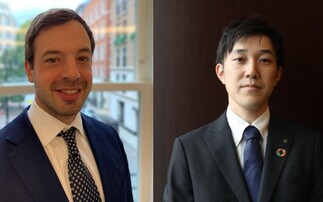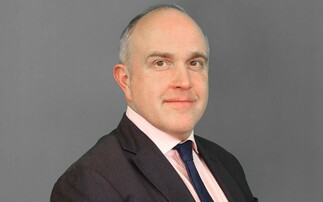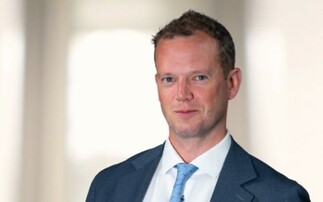We asked Bertrand Lecourt about the aims of Fidelity's uniquely focused sustainable water & waste fund
What is the key goal of the fund?
The goal is to reward long-term investors with a diversified, defensive growth story by investing in companies which are highly transparent and demonstrate a sustainable cash flow framework. And we do this through a high conviction, global equity strategy focused on companies in, or connected with, water and waste management.
How do you try to find the best investments?
There are 10 fundamental factors I look at such as earnings momentum, cash generation, and balance sheet strength. Then we compare companies against each other. The Fidelity system helps us to benchmark investments but also sets the absolute targets we can expect in one or two years. For example, how much dividend growth potential can I obtain and with what risk?
You might see a great pump business in the UK which looks cheap, but is there a cheaper one in the US? Likewise, while the biggest momentum is in the waste market and emerging markets, there are great value pockets in regulated European water companies. At every point in time, we compare the risk/return benefits.
We try not to have extremely large positions in single stocks and we don't turn over the portfolio very much: last year I probably did fewer than nine trades. That means we can spend a lot of time getting to know the companies and building relationships. We are high conviction, long-term investors.
There are not many funds with such a sharp focus - do investors like that?
We've reached €1.3 billion AUM (as at 30.04.20) since launch in November 2018 (SICAV)* and I think that's partly because people can relate to water and waste within their everyday lives. It's a powerful global story but it impacts us all on a local level.
We're possibly the only fund that has this dedication to waste. I have flexibility in terms of the portfolio balance, but we are about 60% water and 40% waste today. If you take a traditional European fund, it might conventionally include some consumer, some banks, a bit of oil and gas, and some tech. We're investing in water and waste companies that people might otherwise not own.
How do you balance the Environmental, Social and Governance (ESG) scoring of firms against the wider impact of their service or product?
You are right, there are two angles here. The first angle is to make sure that we invest in companies with strong ESG ratings. We begin by using external ratings to benchmark each company. At Fidelity we've also developed ESG ratings by our own financial analysts. More than 150 analysts globally not only look at financials and fundamental research, but also give an ESG rating to issuers.
The internal ratings give us a more timely view because external ratings can take 6-12 months to change. It also means that if a company is not rated by the external agency we can deploy our internal ESG rating. That helps us remain compliant with our ESG thresholds, which oblige us to have at least 70% of companies with top ESG ratings in the portfolio.
Most of the companies we invest in are going in the right ESG direction, but some are small, or were derived from family businesses, perhaps in emerging markets. So governance may not be great. We have to meet our general portfolio ESG threshold, but we do have the freedom to accompany select businesses on their journey to higher ESG scores.
That's important because of the second sustainability angle. Whatever their present ESG score, companies in our portfolio potentially have a great impact on global sustainability by providing water and waste management.
*Source: Fidelity International as at 30.04.20
Important information
The value of investments (and the income from them) can go down as well as up and you may not get back the amount invested. Past performance is not a reliable indicator of future returns. Investors should note that the views expressed may no longer be current and may have already been acted upon. This fund can invest in overseas markets and so the value can be affected by changes in currency exchange rates. It can also invest in emerging markets which can be more volatile than other more developed markets. The fund may use derivatives for investment purposes, which may expose it to a higher degree of risk and can cause investments to experience larger-than-average price fluctuations. The Investment Manager's focus on securities of companies which maintain strong environmental, social and governance ("ESG") credentials may result in a return that could, at times, compare less favourably to similar products without such focus. No representation nor warranty is made with respect to the fairness, accuracy or completeness of such credentials. The status of a security's ESG credentials can change over time. Investments should be made on the basis of the current prospectus, which is available along with the Key Investor Information Document and annual and semi-annual reports, free of charge on request by calling 0800 368 1732. Issued by FIL Pensions Management, authorised and regulated by the Financial Conduct Authority and by Financial Administration Services Limited, authorised and regulated by the Financial Conduct Authority. Fidelity, Fidelity International, the Fidelity International logo and F symbol are trademarks of FIL Limited. UKM0520/31139/SSO/NA











